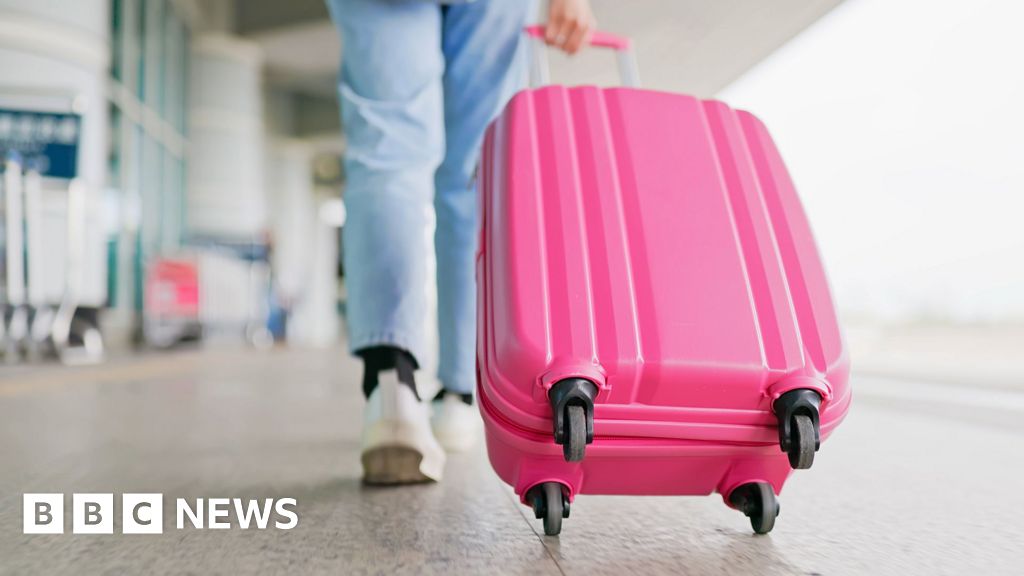ARTICLE AD BOX
By Ken Banks
BBC Scotland North East reporter
A series of failures contributed to a rail crash in Aberdeenshire which claimed three lives, an investigation has found.
A report said the train hit a landslide near Stonehaven in August 2020 after heavy rain in an area where a drainage system had been incorrectly installed.
Investigators also highlighted problems with operational procedures in dealing with the effects of severe weather.
Train drivers' union Aslef said it was a "damning" report.
"The failures identified are so bad that we believe this must be a watershed moment in the way we ensure the safety of passengers and staff," general secretary Mick Whelan added.
Driver Brett McCullough, 45, conductor Donald Dinnie, 58, and passenger Christopher Stuchbury, 62, died when the train derailed on 12 August 2020.
Six other people were injured when the 06:38 Aberdeen to Glasgow service hit washed-out debris at Carmont, south of Stonehaven.
The train was returning towards Aberdeen due to the railway being blocked further down the line.
Animation reconstructs moment of Stonehaven train derailment
The Rail Accident Investigation Branch made 20 safety recommendations in its report on the crash.
They include better management of civil engineering projects, improved response to extreme rainfall, and better understanding of the additional risk associated with older trains.
And they noted that there were only nine people on the train due to pandemic restrictions.
"With normal passenger numbers, the casualty toll would almost certainly have been significantly higher," the report said.
The drainage problem
Image source, RAIB
Image caption,The train hit debris in heavy rain
A drainage system was installed in 2011 and 2012 by now-collapsed contractor Carillion - but it was not in accordance with the design.
Had it been constructed correctly, it was "highly likely to have safely accommodated the flow of surface water" on the day of the crash, the report concluded.
More than 5cm (2in) of rain fell on the site of the crash between 06:00 and 09:00 - close to the average for the whole of August in this part of Scotland.
The train derailed because it struck debris that had washed out of a drainage trench, the report said.
It was travelling at about 73mph - below the limit of 75mph. Mr McCullough, the driver, had been told to proceed at normal speed.
Investigators found no evidence Network Rail carried out any inspection of the upper parts of the drainage system between when it viewed the completed work in 2013 and the accident.
They said that, had Network Rail been aware of the differences between the design and the installation, the risk could have been recognised and action taken.
Coping with severe weather
The RAIB said it found evidence that the Scotland route control team was under "severe workload pressure" on the morning of the crash, due to the volume of weather-related events.
The investigation also found that controllers had not been given sufficient guidance or training to enable them to effectively manage complex situations of the type encountered.
Although Network Rail had taken some steps towards implementing modern technology to help monitor weather conditions and better inform operational decision makers, its capability had not been "fully exploited" before the accident at Carmont.
The RAIB concluded that, despite an awareness of the threat, Network Rail had not sufficiently recognised that its existing measures did not fully address the risk from extreme rainfall events.
The age of the train
A train built to modern standards would have had design features intended to minimise damage in a collision or derailment.
The train involved in the Carmont derailment had been recently refurbished but it was designed and constructed before these standards came into force.
It is "more likely than not" that there would have been a better outcome to the crash if the train had complied with modern standards, the RAIB concluded.
What has the reaction been?
Donald Dinnie, Christopher Stuchbury and Brett McCullough died
Simon French, the chief inspector of rail accidents, said the industry owed it to everyone affected by the tragedy to learn safety lessons for the future.
"It's important for all of us in the rail industry not to dismiss this truly harrowing accident as a one-off event," he added.
"The railway industry needs to think through the implications of severe weather on its infrastructure, whilst also looking to the behaviour of trains should they derail after striking obstructions such as washouts and landslips."
Neil Stuchbury, whose father Christopher Stuchbury died in the crash, said the conditions on the day had been "unusual" but "were not at all unforeseen".
"The tools, know-how, and processes were available to prevent this but were not properly implemented," he said.
Mr Stuchbury said the report showed that "a catalogue of errors and oversights" were responsible for the crash.
Relatives of conductor Donald Dinnie added: "Whilst losing a loved one in these dreadful circumstances has been totally devastating, we also reflect that this accident happened at a time when the early stages of the pandemic saw fewer people travelling."
Image source, RAIB
Image caption,The derailment happened near Stonehaven in August 2020
ScotRail chief operating officer Ian McConnell said the report was "very sober reading".
Network Rail chief executive Andrew Haines said: "This report makes clear that there are fundamental lessons to be learnt by Network Rail and the wider industry.
"As well as expressing our deep sorrow and regret at the loss of the lives of Christopher Stuchbury, Donald Dinnie and Brett McCullough, it's important that we acknowledge it should not have taken this tragic accident to highlight those lessons.
"We must do better and we are utterly committed to that."
The RMT union called for a safety summit involving governments, Network Rail and operators to "ensure this type of tragedy can never happen again".

 3 years ago
42
3 years ago
42








 English (US) ·
English (US) ·